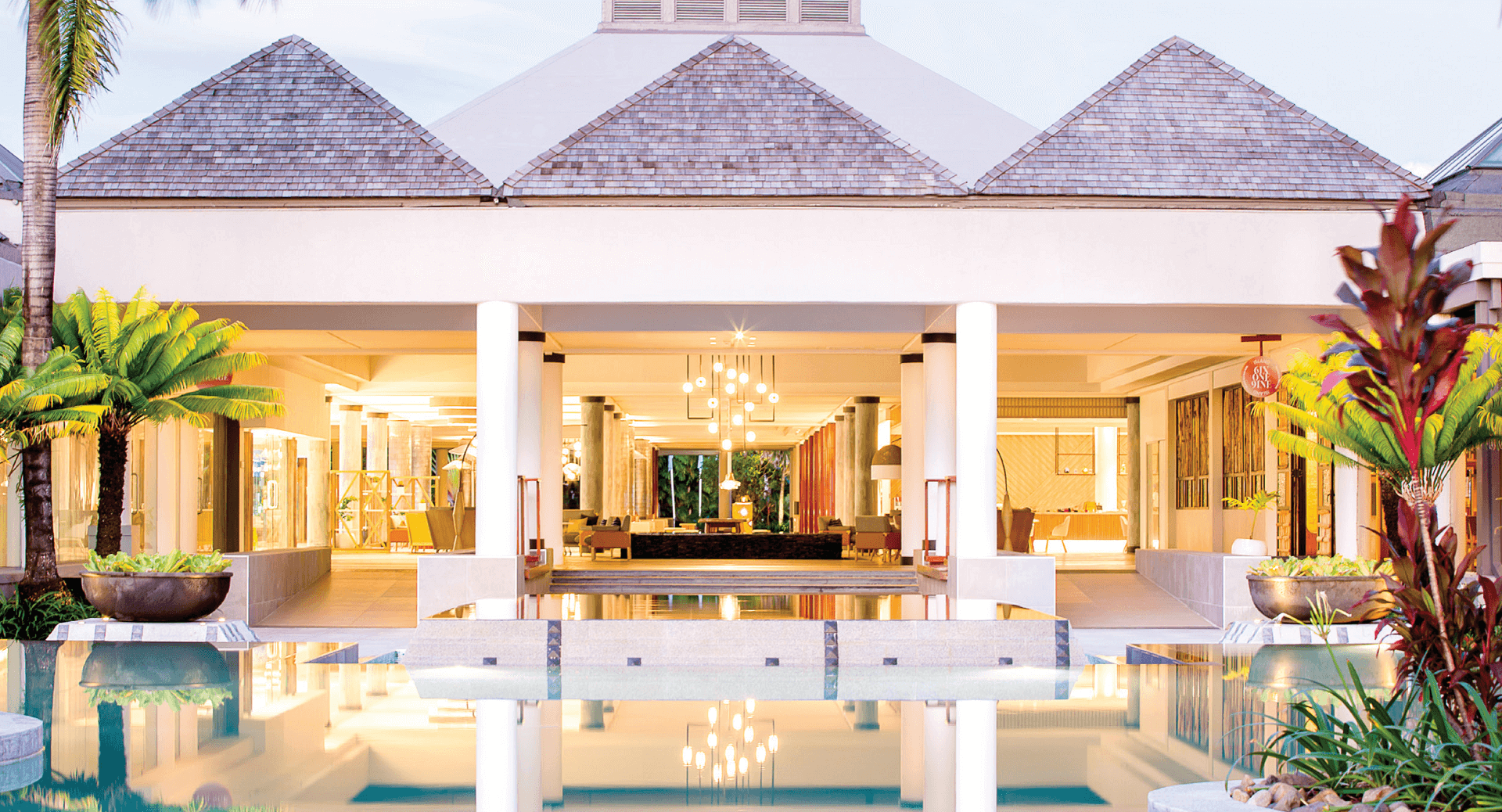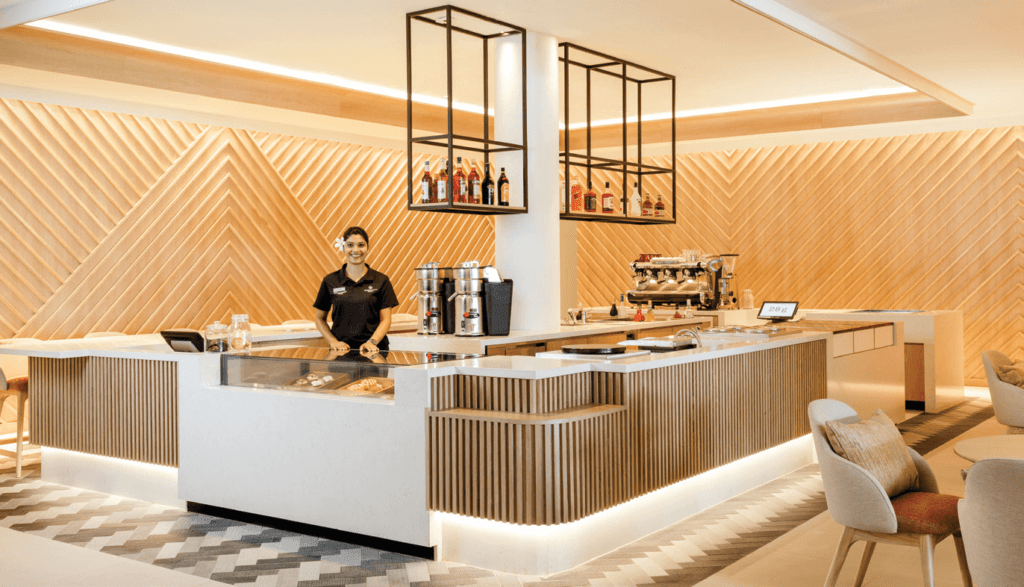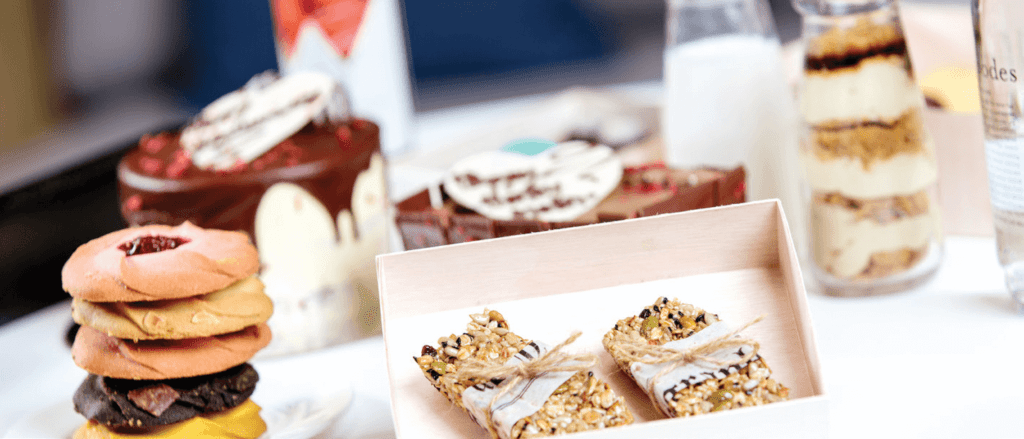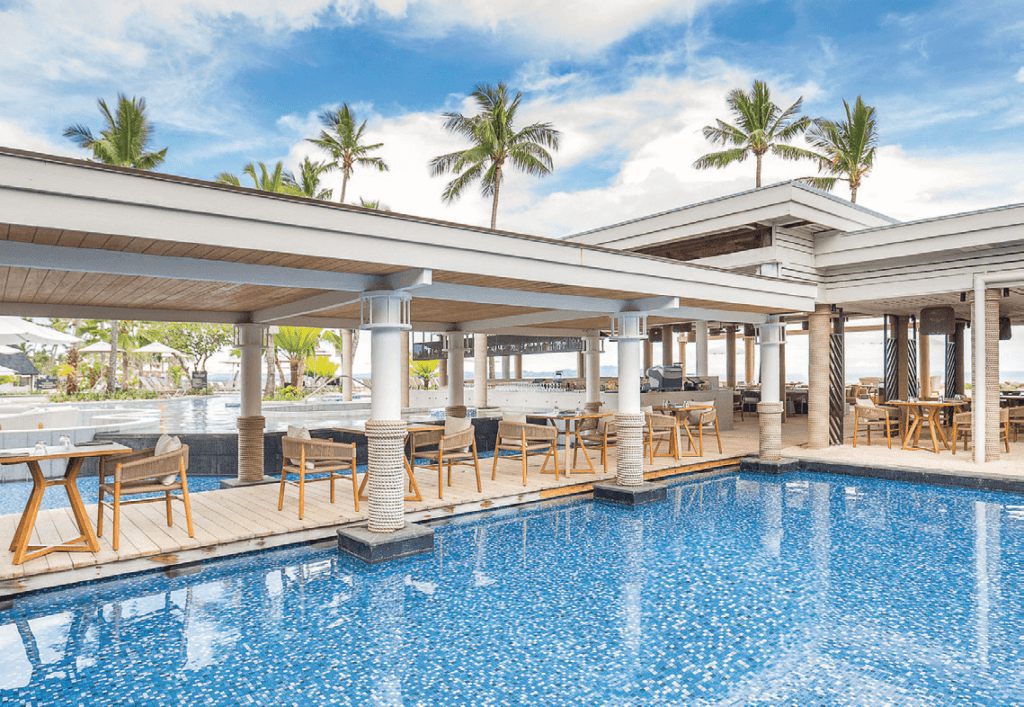Stay
Alchemy with Artistry at the Sheraton
Shaney Hudson returns to the Sheraton Fiji to be welcomed by extensive renovations, fabulous food options, cocktails with a local twist and a feeling of coming home.
April 6, 2023
Pacific Island Living
April 6, 2023I arrive late, just as the sun sets over the Mamanuca Islands. Rain bursts through the clouds on the horizon, and as I watch from my room, a warrior in traditional dress makes his way along the waterfront, lighting tiki torches, one by one, in a quiet rhythm.
I’m one of the first to stay at the Sheraton Fiji Beach and Golf Resort after its extensive two-year, $47-million dollar renovation. However, enveloped in that familiar tropical humidity and with the stars beginning to smatter across the sky, it’s remarkable to me how much a visit to Fiji always feels like coming home.
For many visitors to the Sheraton Fiji, it is. The first resort to open on Denarau Island in 1987, the Sheraton has been a favourite with Australian visitors for generations; a phenomenon I experience when checking-in behind a family group of 20 (and their luggage) at the hotel. But as my porter explains, it’s all in the family for the staff as well.
“This is not just a multigenerational destination, but a multigenerational workplace,” he laughs, shouting out BULA! to a mother and son both arriving at the resort for work. While the rooms might be brand new here, the cheeky sense of humour and genuine Fijian hospitality isn’t.

At the resort, the emphasis is on keeping families together. Instead of creating a separate kid’s club, the Sheraton focuses on ‘Side by Side’ activities families experience together, such as cooking demonstrations, beach volleyball and fishing.
However, to the delight of many parents, there seems to be one exception to the Side by Side rule: aquarobics for families is scheduled to coincide with the daily coffee tasting at 28g; the Sheraton’s uber-chic coffee bar. By design, the kids stay in the pool while the parents steal away for coffee.
Our barista, Zane, marries alchemy with artistry as he prepares two signature coffees for us to compare. The first is a cold brew tonic, a 50-50 split of cold brew coffee and tonic over ice; the second an espresso tonic – a ¾ glass of tonic served on ice with a shot of hot espresso gently poured on top. I’m torn: the cold brew has delicate citrus flavours, but the gorgeous crema and slightly bitter taste of the espresso tonic wins me over.

“I did a little experiment last week with the cold brew tonic where I put a shot of gin in it,” says Zane as he prepares a second espresso tonic for me.
“It was magical. It worked so well. It didn’t even need the twist of lime in it”.
It’s almost enticing enough to make me forgo my nightly sundowner, but at the swim up bar, I sample a sweet strawberry daiquiri flecked with fresh green basil, a curious addition that gives it a gentle sour kick against the tropical sweetness.
Most guests are unaware that much of the fresh produce used in the Sheraton’s restaurants is grown just minutes away on the resort’s two-hectare organic farm, adjacent to the resort’s 18-hole golf course.
Salad greens, fruit and vegetables are all grown here. Herbs like basil are blended in cocktails at the bar, chopped into butter and served with grilled lobster at Tatavu, the a la carte grill, and used as a garnish on the fresh wood fired pizzas at Island 619, the main dining restaurant.
Tours of the farm are offered to guests, and my guide explains that after its long closure and renovations, as well as some spectacular tropical storms, staff had to revive the gardens almost from scratch. Hydroponics are used to grow the kitchen greens, while the seed mix used in the nursery is fed by compost created from kitchen waste, including used coffee grounds from 28g and charcoal and ash from the grill at Tatavu.
An organic farm to fork experience wasn’t what I expected from a tropical paradise – or one of the island chain’s biggest resorts – but standing among the neatly planted rows of vegetables and herbs in the paddock, it feels like this is the next way forward for hotels.
It’s an easy stroll from the farm to the fairway, the border marked by a line of shady coconut trees. As my guide and I shade underneath, waiting for our ride back to the resort, one of the gardeners cuts coconuts for us, each landing with a distinct thud on the green. Our small group attracts the attention of a party of golfers, and we share the shade, making light conversation about the farm, and the basil used in the cocktails.

I bump into them again that evening at the entrance to Tatavu. One half of the group eye off the impressive custom built vertical grill (one of only three in the world), while the other size up the fresh market fish, lobster and mud crab laying on a bed of ice opposite.
I save my enthusiasm for the dessert menu, and instead order a Cape Grim steak, medium rare. After a few minutes they’re seated nearby and I can’t help but overhear the waitress take their drinks order: “Four strawberry daiquiris thanks; the ones with the basil from the farm.”
© 2024 Pacific Island Living Magazine all Rights Reserved
Website by Power Marketing